|
In July, I had the opportunity to attend the Summer Leadership Development Program with The Lay Centre in Rome. I spent one week in the Eternal City and it was such a wonderful experience! Going into the week, I was not exactly sure what the program would entail. I knew that it was a leadership program for young people in the Church to better understand their call to leadership, but I was not sure what the actual program itself would be like. This also was the first time that I had traveled internationally by myself! I was both excited and nervous at the challenge. What do I do if my flight gets delayed? What if I am unable to find a taxi at the airport? What if I get lost trying to find the entrance to the Lay Centre? All these questions (and more) circled around in my mind as I prepared for the trip. I boarded my flight at JFK Airport in New York and arrived smoothly in Rome on a sunny Friday afternoon (first fear of my flight getting delayed was avoided) and I successfully found a taxi to take me from the airport to the Lay Centre (second fear tackled). Finally, I was welcomed into the Lay Centre by their wonderful staff and began to settle myself into my new home for the next week (third fear conquered!). My first day and a half in Rome was free time, to adjust to the time difference and explore the city. I enjoyed walking past the Colosseum from our accommodations at the Lay Centre and over to the Trevi Fountain where I would get a gelato to enjoy on my walk back. It was such a great start to the trip! I also began to chat with the other participants of the program; we all stayed in the same hall with our own rooms and shared a bathroom with one other person. It was a similar layout to what you may see in a dorm room. I was one of four participants from the United States, the other twenty or so were from all over the world - from Cameroon to South Korea to Afghanistan - there were so many different cultures to learn from. I really saw the work of the Lord through all these people. It was so interesting to see that we all come from different backgrounds, but all had one thing in common - a love for the Church. We spent the week learning about leadership: What does it mean to be a leader? How can we be effective leaders? What does it mean to allow the Lord to move us as leaders? How can we lead with the morals Jesus taught us? We sat through various presentations from different religious communities and learned about the models of leadership through St. Benedict and St. Ignatius Loyola, as well as reflected on our own individual leadership styles and strengths. All of these discussions bore many fruits throughout the weeklong program and spurred great conversations about the importance of faith in leadership. Each of us brought our own, individual idea of leadership and we were able to grow on models that others brought to the table. Each day, we began with morning prayer, and we were encouraged to volunteer to share a prayer exercise with the group. One of my favorites was learning and participating in the Taize prayer. I have always enjoyed prayer through music, but I had never experienced this meditation technique. It was very calming and helped me to put my focus on the Lord. We ended each day with evening prayer followed by dinner, which we ate together as a group. Sharing meals together as a group and telling stories from our own experiences and backgrounds really helped to strengthen our bond as a group. Every meal was filled with inquisitive insight, laughter, and joy (as well as delicious home cooked Italian food!). I had never lived in a community before; I had lived in a dorm for several years in college, but I had never experienced community life like this. It was such a great experience! Everyone was so welcoming, warm, friendly, and always went out of their way to help one another. Whether it was helping me carry my suitcase to the fourth floor, filling up my glass at dinner, or lending me a bus ticket, I was struck by the selflessness of others. In reflection, I experienced so much growth during this one week abroad. I grew in my confidence of solo travel, I grew in my professional life by learning various leadership skills, I grew in my personal life from meeting so many people of different cultural backgrounds, and I grew in my spiritual life through our studies of the saints. I am so thankful to have been given the opportunity to attend the Summer Leadership Development Program and will continue to grow from the experience for years to come.
0 Comments
As a child, I played a favorite game with my friends called “follow the leader” where everyone did exactly as the name suggests – followed the leader. If you didn’t do what the leader did you would be eliminated from the game. This game correlates to the Christian life: when we follow Jesus and do what He did, we reach our heavenly destination. We are wise to remember and heed Matthew 18:3-4: “Unless you become like children, you will not enter the Kingdom of heaven. Whoever becomes humble like this child is the greatest in the Kingdom of heaven.” How important it is as an adult Christian to always have the willing mindset of a child – to follow the leader with joyful expectation and simple trust. This reminds me of a remarkable event in my life that illustrates this concept. Several years ago, when our four youngest children were still living at home, we embarked on one of our family camping vacations. Having a large family, we had chosen camping as a way to enjoy a vacation together while on a budget. It removed all the distractions of our life of modern conveniences and afforded us time in the great outdoors to relax and build memories. This particular adventure took us to Cloudland Canyon State Park on Lookout Mountain, on the border of Georgia and Tennessee, a glorious place high in the mountains with astounding stargazing at night and amazing hiking trails during the day. One day we chose to traverse the Waterfalls Trail. The sign at the trailhead read “Steep grade ahead, use caution. Stay on marked path.” That should have been my moment of truth, my opportunity to bail and choose to sit on a bench and enjoy the 1780 ft vista and await my family’s return. But I ignored the queasiness in my stomach and forged ahead with them as they vivaciously marched down the canyon on a slim, winding trail. My stomach began to ride higher into my chest, my breathing was becoming fast and bordering on gasping and my feet were becoming heavy and unsure on the many twists and turns. After we passed under an enormous rock overhang, my body halted and I literally could not take another step. I was paralyzed with fear. Did I forget to mention, I’ve suffered from overwhelming fear of heights ever since I was a teenager? It was alive and acutely crippling on this day. As I watched my children bounding ahead and walking precariously near the rim of the steep trail, the fear gripped me to the point of panic. My husband kept telling me to look ahead, not down, and to follow his footsteps so that I would be safe and secure. The more I thought about moving forward, the stiffer I became. Moving at all in this way was sure to make me more apt to stumble. On my own steam, I could not go any further. I was at an impasse. With wisdom and child-like trust, my husband gathered our children all around me and asked each of them to lay their hands on me and to pray for all fear to cease so that I could be free to walk with joy and confidence. They did not want to leave me behind or to turn around and abandon the hike to the waterfalls. After several minutes of prayer, my breathing slowed to normal, my heart stopped racing, I unclenched my fists, and my legs relaxed. I felt a distinct release of tension in my body and my mind – so much so that I knew that I could resume the hike without fear. It was a healing miracle I claim to this day, as I can now hike steep mountains and enjoy magnificent views from heights that I could not before. My husband and children were instruments of faith who infused the peace of Jesus into me so that I could follow the leader and enjoy the boundless beauty nature had to offer on that hike. Later that night, my husband commented that Jesus healed me and gave me sure feet to traverse the steep path with assurance. I will never forget that manifestation of God’s love for me and I am willing to continue to follow the leader on all the paths He takes me because I know He will give me strength and guidance every step of the way. I am comforted by the instruction in Matthew 7:13-14 where Jesus says: “Enter by the narrow gate, since the road that leads to destruction is wide and spacious, and many take it, but it is a narrow gate and a hard road that leads to life, and only a few find it.” As humans, we cannot find and walk this path on our own. We need a leader, but we also need to be aware of all the people God places in our lives who provide guidance and leadership when we need it. It is part of the mystery and beauty of living in community with others in this life. If I had not yielded to the assistance of my family, I would have remained in bondage to crippling fear. I received help to navigate off the wide road of self -doubt and irrational panic that is destructive. With simple child-like trust and prayer, I was able to stay on the narrow path that led to a glorious adventure and freedom! My prayer is that each of us practices the obedience of following the leader so we can navigate the path that leads us to eternal peace. It is certain to be rough, but instruction is always available to us. We have to be humble and have child-like trust to adhere to the direction He provides. “Whoever wishes to come after me must deny himself, take up his cross, and follow me.” Matt. 16:24 As the ongoing coronavirus pandemic eventually allowed for opportunities to leave the home, one of the most meaningful greetings which welcomed my return to Mass were the familiar words, “Peace be with you.” The calming presence of the parish priest eased the troubles of my mind, soothed the restlessness of my heart, and enlivened my soul to sing, “Let us go unto the House of the Lord!” While the celebration of the Holy Sacrifice of the Mass and the reception of our Lord in Holy Communion immediately made up for the lost time during the pandemic, there were other reminders that we had been away: new priest assignments, reminders to exchange the weekly offering envelopes, many parishioners enthusiastically greeting each other in happy parking lot reunions, our pastor sporting a new beard, and someone even observing, “You’ve lost some weight, Father!”
The place our parish priests hold in our hearts is a treasured one. We depend on them to teach us through homilies, expose the Blessed Sacrament, listen to our sins and offer absolution, preside over the nuptial Mass, baptize our children, anoint the sick, and console us through times of death. And that’s just the minimum. While the rest of us are busy at work, school, or caring for our households, our parish priests are meeting with the church leadership, making rounds at schools or hospitals, organizing retreats and special services, offering spiritual guidance, and working at the rectory. But caring for the spiritual needs of hundreds of parishioners does not end at 5 PM. Starting from the sacred occasion of ordination, a priest is always on-call. Who rushes to the side of the dying, cares for those who have lost everything, counsels those in conflict, or ministers through any number of crises? Who faces the mounting expenses and bills of the parish, limited Sunday collections, possible stagnation of new family registrations, and who perhaps lacks as many helpful hands as he would like to keep the place running smoothly? Especially through this pandemic, the parish priest again and again is called to bring us into an encounter with Jesus Christ as best he can with whatever resources are at his disposal. If caring for our household’s needs presents a challenge, just imagine how the parish priest feels overseeing his parish! As the Church celebrates the feast day of St. John Vianney, we can see how so many of the priests in our lives emulate the example of the Curé d'Ars, who himself followed the example of the priesthood of Jesus Christ. The French Revolution resulted in an increase of the population’s ignorance of and indifference to religion. As a result, St. John Vianney went about his priesthood by spending at least 11 or 12 hours a day in the confessional in the winter; longer still in the summer. The simple piety of this holy priest not only brought about many conversions for the Church, but reinvigorated the faith in areas where secularism had long dominated the culture. Likewise, by immersing themselves into the daily lives of our communities, our parish priests “serve ‘in the trenches,’ bearing the burden of the day and the heat (cf. Mt 20:12), confronting an endless variety of situations in [their efforts] to care for and accompany God’s people.” Pope Francis continued, in his 2019 letter to priests commemorating the 160th anniversary of the death of St. John Vianney, to express his closeness and solidarity to priests. He also expressed personal gratitude “for your fidelity to the commitments you have made… [and] for the joy with which you have offered your lives.” The Holy Father concluded his letter by praising the witness of their shared vocation: For I am confident that “God takes away even the hardest stones against which our hopes and expectations crash: death, sin, fear, worldliness. Human history does not end before a tombstone, because today it encounters the “living stone” (cf. 1 Pet 2:4), the risen Jesus. We, as Church, are built on him, and, even when we grow disheartened and tempted to judge everything in the light of our failures, he comes to make all things new.” … May we be men whose lives bear witness to the compassion and mercy that Jesus alone can bestow on us. Let us strive to show the priests in our lives our gratitude and support. May many men continue to discern and answer the call of our Lord to the sacred work of ordained ministry. As we answer the universal call to holiness in our own lives, may we also support those who have dedicated their lives to answer, “Here I am. I come to do Your will.” To learn more about Holy Orders, listen to our latest podcast here. I stumbled into entrepreneurship in 2016 after studying philosophy, theology, and anthropology for my undergraduate and graduate degrees. Ending up in the business world felt like a long and winding road filled with sleepless nights, much discernment, and many conversations. In the few years after graduating from college, like many early 20-year-olds, I felt untethered and unsure of my direction. What was my direction in life? What was my mission? How did the Lord want me to use my gifts and talents to serve him? At the time, I attempted to answer these questions by searching for women who had accomplished work in the same field that I was going into. I spent endless hours looking for women on LinkedIn in their 40s and 50s who had achieved a successful career while also being married and raising a family. My search was futile. Although I did find a couple of single Catholic female entrepreneurs to connect with, for years, I felt like I was “making it up as I went along”: trying to weld married and family life while scaling a business, hiring and firing employees, serving clients, and trying to keep God in the center of it all. Every vocation for women within the Church is beautiful and worthy, but being a Catholic entrepreneur in particular has been challenging. Although I have developed some great friendships with secular business women, I can’t connect with them fully about discerning business decisions with my spiritual director or praying a daily rosary for my employees. Within the Catholic sphere, I can’t completely relate to stay-at-home mothers or women who are working a 9-5. I desperately needed a mentor but could not find one who was willing to devote time and effort to my growth. Speaking to women’s particular vocation, Pope John Paul II in Mulieris Dignitatem spoke to every woman’s calling to love: “The moral and spiritual strength of a woman is joined to her awareness that God entrusts the human being to her in a special way. Of course, God entrusts every human being to each and every other human being. But this entrusting concerns women in a special way - precisely by reason of their femininity - and this in a particular way determines their vocation”. Here, Pope John Paul II illuminates women’s ability to “receive the other” because of the design of their femininity. Through their motherhood, spiritual and physical, women are capable of receiving, knowing, and loving others in a manner different to men. God entrusts humanity to women, knowing that she is uniquely made to care for those around her. This act of entrusting carries through to every aspect of our modern world, including the sphere of business. Just as a mother nurtures her family, every woman in business has the mission to nurture those in her care: her clients, her employees, her colleagues. In a special way, Catholic women entrepreneurs co-create with God to create something out of nothing. Every woman-owned-business begins as merely a dream placed on her heart. Her mission is to share with the world her services and products—glimpses of God’s own heart and a genius that only she can share. This is why mentorship is essential: so that women who are called to practice business can find and live out their own unique mission in this world. Women are called to cultivate the gifts and talents of others, to foster the dreams that only they can bring forth. A mentor provides guidance, critique, and reassurance as a young person matures. This is crucial to the formation of any woman, entrepreneur or not, but also fulfills the role of each Christian to evangelize the world. Without this relationship, one might not have the tools and resources to realize their full potential. By fostering the gifts and talents of others through mentorship, women are living out their feminine genius. My Co-Founder, Emma Moran, and I created Catholic Women in Business in 2018. CWIB is an online resource of Catholic women who are seeking to live a life of faith while striving for excellence in their careers. We hope that it’s a space for women to cultivate mentorship and connection. My dream is to initiate a movement where there is more mentorship available within the Church, for women and men. In encouraging these relationships, I believe we will be able to activate the missions of those within our communities, answer the Church’s call to a New Evangelization, and to bring forth the Gospel into our society. Today is the feast day of St. Matthias, the only Apostle not chosen directly by Christ. We know from the Acts of the Apostles that after Christ’s Ascension, Peter stood before a crowd of disciples and declared that they needed to choose a disciple to replace Judas the betrayer in order to restore the number of Apostles to twelve. They chose two men who had followed Christ since his baptism, drew lots, and the lot fell to Matthias. Thereafter he was included among the twelve apostles. Beyond this brief mention, there is nothing conclusive known about St. Matthias—nothing about where he went to preach the Good News or whether he was martyred or where he died.
Minor figures in history have always piqued my interest—especially those who are barely mentioned but who nevertheless mattered enough to get mentioned at all. And St. Matthias, as a minor but thought-provoking figure in the New Testament, has always intrigued me for two main reasons. First, he reminds me of the dozens of followers of Christ who never get face time in the Gospels. After the Ascension, at the gathering when Matthias was chosen to be the twelfth Apostle, there were well over a hundred people in attendance. And out of that crowd there were several men who had followed Christ from the beginning—men whose names and occupations we will never know, but who, like Matthias, embraced Jesus’ mission and accepted even the most difficult of His teachings. They might have gone on to be martyred in the persecutions of the early Church or they might have only brought Christianity to their loved ones and neighbors as they quietly lived out their ordinary lives. The unnamed disciples, from whom Matthias was chosen, remind me that most of us are called to be the same—historically insignificant followers and witnesses of Christ whose lives may not be recorded in history books but whose work is more important than worldly accolades and technological advances. The second thing I find interesting about St. Matthias is that his role among the Twelve could not have been easy for him to assume. Surely no one doubted Matthias’s loyalty to Christ, for Matthias had followed Him from the very beginning and had never been put off by any of Christ’s actions, as so many others had. But Matthias was suddenly elevated from a regular disciple to a leadership position; was that something he was prepared to take on, or did he feel out of his depth and intimidated by the Eleven, unworthy to be counted among men who had had such an intimate relationship with Jesus? Did the Eleven embrace Matthias as one of them immediately, or was there some friction because, although he was now counted among the Twelve, he had not had the same experiences of Christ’s earthly ministry? Was it difficult for Matthias to be replacing the one who had betrayed Christ—did he feel that he needed to prove himself? The Bible makes no mention of St. Matthias protesting his selection—He presumably embraced the burden and honor of the role given to him under the guidance of the Holy Spirit. If I had been in Matthias’s shoes, I probably would have been reluctant to accept such a role of leadership in the fledgling Church, and I certainly would have wanted to prove myself somehow better or more worthy than my predecessor. St. Matthias must have known the difficulties inherent in becoming the twelfth Apostle. He was effectively making himself a target for the enemies of Christianity, he was pledging himself to a difficult life of evangelization, and he would be leading alongside men who had known Jesus better than he ever had. Matthias must have known that his chances for suffering would greatly increase if he accepted God’s will; I know in my own life, I sometimes avoid doing things I am called to do because I can see that the graces I receive will come with a period of struggle or suffering—mentally, physically, emotionally, or spiritually. Especially on his feast day, I think most of us can reflect on how we could strive to be more like St. Matthias: we are all capable of greatness – if only we could follow Christ and accept what is asked of us without question. On July 25th, we celebrate the feast day of St. James the Apostle. St. James and his brother John were the sons of Zebedee. Jesus referred to these brothers as the “Sons of Thunder,” most likely due to their penchant for rash, emotional reactions and decisions. St. James teaches us the importance of humility and of promptly responding to God’s call, regardless of the securities we may leave behind in doing so. He was the first apostle to die a martyr’s death. We can look to his zeal for following Christ and his courage in spreading the faith in difficult times as examples for our own spiritual lives. We remember from Scripture that St. James and St. John initially asked Jesus if they could be placed on either side of him in his heavenly kingdom. Jesus uses this as an opportunity to reiterate to the disciples the importance of servant leadership. Jesus responds, “You know that those who are recognized as rulers over the Gentiles lord it over them, and their great ones make their authority over them felt. But it shall not be so among you. Rather, whoever wishes to be great among you will be your servant. Whoever wishes to be first among you will be the slave of all. For the Son of Man did not come to be served but to serve and to give his life as a ransom for many.” (Mark 10:42-45) From this lesson and Jesus’ previous parable of The Workers in the Vineyard (Matthew 20:1-16), we learn that the faithful are invited to receive the ultimate reward of eternal life with our Father in heaven. Jesus reminds us that we shouldn’t get caught up in the earthly understanding of rankings, but can all share in the glory of God in heaven. We also learn from this example with St. James and St. John that serving others is how we are called to love our neighbors. As 1 Corinthians 13:3 says, “If I give away everything I own, and if I hand my body over so that I may boast but do not have love, I gain nothing.” Jesus asks us to rely on him and not on others’ recognition of our sacrifices. In the New Testament, we often hear of St. James mentioned with Sts. John and Peter. These three disciples were privileged to be present at many of the significant moments in Jesus’ ministry on earth, including the Transfiguration and Agony in the Garden. The Holy Spirit’s presence within the apostles at Pentecost was a turning point for St. James and the other disciples because it showed them the true nature of Jesus’ mission and the meaning of his sacrifice on the cross (Benedict XVI, General Audience, June 21, 2006). From there, James and the other apostles went out to all the nations, preaching Jesus and his Gospel message. James’ life after Pentecost symbolizes the pilgrimage of the Christian journey (Benedict XVI, General Audience, June 21, 2006). His journey is one of the reasons he is considered the patron saint of pilgrim travelers and was recognized as a patron saint of World Youth Day 2016. In fact, the path to Santiago de Compostela, where St. James is buried in northwestern Spain, was one of the most traveled pilgrim routes during Medieval times after Rome and Jerusalem. Many people continue to make this pilgrimage today and to seek the guidance of St. James. We can call upon him to protect us during our journeys and to intercede for us for our personal conversions of heart before, during, and after our travels. We are called to follow Jesus as St. James did, knowing that even through life’s difficulties, we are walking along God’s path for us together with Christ. Through the example of St. James the Apostle, we see that following Jesus can have its difficulties through persecution and other hardships, but that our eternal reward is life in heaven with him. St. James’ story encourages us to leave our comparisons to others behind, fully trust in God, and show enthusiasm for Jesus Christ even when it is difficult. Questions for Reflection: Have you ever embarked on a pilgrimage? How did it deepen your spirituality? What are some ways we might be called to grow in our humility as we practice servant leadership in following Christ? On July 1-4, 2017, Catholic dioceses and organizations reflecting the diversity of the Catholic Church in the United States will convene for a Convocation of Catholic Leaders in Orlando, FL. Approximately 3,000 people representing over 155 dioceses and numerous church organizations will meet to discuss methods and ideas for making Pope Francis’ vision of a “missionary option” for Church ministries and activities a reality in the United States. This unprecedented event is being called and organized by the US bishops, signifying the importance of such an event as a necessary step for Catholics in the Church today to live as missionary disciples filled with the “Joy of the Gospel.” While those who are attending the Convocation are already Church leaders, they look to the guidance of the bishops in order to help them tackle their particular pastoral challenges and foster opportunities for growth.
The Catholic Apostolate Center has been invited by the United States Conference of Catholic Bishops (USCCB) to collaborate on the planning of the Convocation, as well as to attend as a sponsor and exhibitor in order to share our ministry and promote our work of fostering evangelization. Center Director, Fr. Frank Donio, S.A.C. will be speaking at the Convocation to help guide and foster dialogue among the participants. The Center is also collaborating with the USCCB to develop and distribute the Participant Guidebook and Journal and collaborate with them on pre-Convocation webinars. One webinar provides the theological basis of the Convocation. Another webinar discusses the practical layout and methodology of the event. The mission of the Catholic Apostolate Center is to revive faith, rekindle charity, and form apostles through the lens of Pallottine spirituality. Our patron, St. Vincent Pallotti, believed that all the members of the Church are called to collaborate in spreading the Gospel. “The Catholic Apostolate, that is, the universal apostolate, which is common to all classes of people, consists in doing all that one must and can do for the great glory of God and for one’s own salvation and that of one’s neighbor,” St. Vincent Pallotti said. The Catholic Apostolate Center further hopes to help dioceses, organizations, and ministries better collaborate with each other and find ways to share the resources we have as a Church. The Convocation of Catholic Leaders will be a monumental event for the Church in the United States which we hope will bear much fruit. For those attending, I invite you to read, reflect, and pray for the openness of the Holy Spirit in guiding your participation during the Convocation. We also invite attendees to visit our exhibit to learn more about our resources and work. At the Catholic Apostolate Center, we are always interested in collaborating and working together to form apostles for our Church. For those that will not be able to attend, please pray for the participants and organizers of the Convocation, that they may be open to the Holy Spirit to guide their efforts. May he help us become missionary disciples, or as our Patron St. Vincent Pallotti would say, apostles, in the United States. To learn more about the Convocation for Catholic Leaders, please visit the USCCB website by clicking here. For additional information and resources, we invite you to visit our website by clicking here. Leadership is essential for a healthy and holy Church. From St. Peter to Pope Francis where would our Church stand today without the great and gifted leaders through the centuries? Leadership in the Church, including local parishes, is not immune from the kinds of temptations leaders face in any institution. Based on my experience, I’d like to consider three temptations many leaders face framed by J.R.R. Tolkien’s classic Lord of the Rings series. It is my hope that understanding and being aware of these temptations will lead to a stronger, more unified Church grounded in the love of Christ. The Pursuit of Power “The road must be trod, but it will be very hard. And neither strength nor wisdom will carry us far upon it. This quest may be attempted by the weak with as much hope as the strong. Yet it is oft the course of deeds that move the wheels of the world: Small hands do them because they must, while the eyes of the great are elsewhere.” (The Fellowship of the Ring) Tolkien’s story relies on some rather homely and “weak” characters—hobbits—to carry out a great task: destroying the magic ring to save Middle Earth. We normally identify leaders by their exceptional strengths and talents. We use popular tools like strength and personality finder tests to help us identify our unique gifts. Using our gifts and talents to build up the Body of Christ is prudent and life-giving, but we should not too quickly assume God only wants to use our human strengths to bless or lead his Church. In fact, God often builds up the Church by using our weaknesses. He entrusted the building of His Church, afterall, not to the rabbis and scholars of his time, but to simple men, fishermen. As St. Paul frequently preached, cross-shaped leaders learn to live first out of their weakness and dependency on the power of the crucified Lord: “Consider your own calling, brothers. Not many of you were wise by human standards, not many were powerful, Rather, God chose the foolish of the world to shame the wise, and God chose the weak of the world to shame the strong… I came to you in weakness… so that your faith might rest not on human wisdom but on the power of God.” (1 Cor 1:26-27; 2:3,5). Knowing our weaknesses helps us as leaders to not fall into the temptation of the pursuit of power. Christ is glorified in our human weakness and can transform it for the building up of His kingdom. The Allure of Ambition “You are so wise and powerful, will you not take the ring?” “No!” cried Gandalf, springing to his feet. “With that power I should have power too great and too terrible.” (The Fellowship of the Ring) The allure of the ring is the promise of control, but the great wizard Gandalf understands the power of the ring inevitably ends up controlling the wearer. True leaders develop habits of cooperation and collaboration in ministry and are quick to deflect praise and thanks onto others. Because leaders are in a position to influence outcomes and events, however, some can be tempted to an unhealthy ambition. Sometimes, it can be tempting to view parish ministry as a stepping-stone to a bigger, better career in the church or name recognition. Unhealthy ambition can also feed a spirit of competition and criticism between churches that undermines our call to communion. One of my go-to prayers to combat this attitude is called the Litany of Humility. It is a good practice to periodically check our focus and drive. Does our work stem from a love of Christ and His Church? Are we seeking God’s greater glory or our own? Masking Immaturity “All that is gold does not glitter, Not all those who wander are lost; The old that is strong does not wither, Deep roots are not reached by the frost.” (The Fellowship of the Ring) I had a friend who out of college was given the responsibility of the youth ministry program at his home church. Unfortunately, early on he made a financial mistake that ruined a popular trip and drew harsh criticism from parents and staff alike. Unable to cope with such treatment, he resigned from ministry shortly after. Rather than seeing failure or mistakes as reasons to give up, these can be seen as important opportunities for growth and maturation. A young church is surely a sign of a healthy and growing church, but that doesn’t make it a mature church. While the freedom to take risks and make mistakes is an indispensable part of learning, leaders should surround themselves with team members who are varied and diverse in their ministry experience. For those who are relatively new to working for the Church, I suggest finding a faithful mentor or spiritual director with whom you can share struggles and receive encouragement. As Tolkien notes above, the Church needs wise, mature men and women to walk alongside its young, teaching patience and perseverance in order to grow deep roots. Thanks to many gifted and faithful leaders, our Catholic Church indeed has deep, strong roots. By knowing and understanding a few temptations leaders can face, we can help our Church become more faithful and stronger. Pray for our church leaders, that God may give them the grace to be wise, humble, gracious, and joyful examples of the call to be more obedient followers of Jesus. “Let us remember that we are in the holy presence of God.” With these words, I and students of Lasallian schools around the world would pause before class to contemplate and center ourselves on this truth. This call to prayer tended to have the effect of stilling the room, if only for a few moments of silence, but I especially appreciated turning my focus to God before carrying on with my day. Even after I graduated from high school, I was able to cherish this simple ritual even more as I would go through my busy routine at The Catholic University of America. I found that even the simplest acknowledgement of God— this small act of love— would help me endure the challenges of the day. The Church celebrates the feast day of St. John Baptist de La Salle on April 7, though his institutions continue to celebrate on May 15, the date of his original feast day until 1969. Students of De La Salle’s schools may be very familiar with his biography, whose life’s works are the very foundation of their education. De La Salle was born to a wealthy family in Reims, France in 1651. At that time, most children had little hope for social or economic advancement. Seeing how the educators in his hometown were struggling, lacking leadership, purpose, and training, De La Salle determined to put his own talents and education at the service of the children “often left to themselves and badly brought up.” Having donated his inheritance to the poor of the famine-afflicted province of Champagne, De La Salle began a new religious institute, a community of consecrated laymen to run free schools “together and by association,” the first with no priests among its members: the Institute of the Brothers of the Christian Schools, known in the United States as the Christian Brothers. His community would grow to succeed in creating a network of quality schools throughout France that boasted revolutionary educational practices such as instructing in the vernacular, grouping students according to ability and achievement, integrating religious and secular subjects, having well-prepared teachers with a sense of vocation and mission, and involving parents. Today, the Christian Brothers are assisted by more than 73,000 lay colleagues, teaching over 900,000 students in 80 countries. As a “Brother’s boy,” each of my peers and I would learn to take up our studies as well as our friendships with gusto and dedication, being made ever aware of the gifts God had given each of us. The life of De La Salle was especially studied as part of the freshmen curriculum, but each student was expected to emulate his example of charity and spirituality through and beyond graduation. St. John Baptist de La Salle showed others how to teach and care for young people, how to meet failure and frailty with compassion, and how to affirm, strengthen, and heal. His advice to his community of educators still rings true for the countless students taught in his name: “to do all [your] actions for the Love of [God] … with all the affection of your heart” and to “hold prayer in high esteem as the foundation of all the virtues, and the source of all grace needed to sanctify [yourselves].” The Brothers I was blessed to have as mentors surely strove to follow this example in all aspects of their lives; they’d encourage us to simply be aware of and open to God’s will. Returning to prayer, then, was essential to the ministry of St. John Baptist de La Salle. I would and still marvel over how truly beautiful is the sight of seeing students pray before class, meals, games, and trips —not just out of need or a particular want, but out of love, faithful devotion, praise, and thanksgiving. Especially in times of global, local, or personal strife, the small chapel in the corner of my high school would always contain at least one of my peers before the Blessed Sacrament. Of the many gifts our beloved founder gave to the modern education system, I especially cherish the routine of prayer instilled in my life and that of countless others. Not only would we remember our being in God’s holy presence, but also that God Himself faithfully, lovingly, eternally, and supportively lives in each of us. “Saint John Baptist de La Salle, pray for us!” “Live, Jesus, in our hearts! Forever!” For more resources on Prayer and Catechesis, click here. “Keep multiplying your commitment because what Vincent Pallotti prophetically announced, the Second Vatican Council authoritatively confirmed, becoming a happy reality, and all Christians are authentic apostles of Christ and the church and in the world!" -St. John Paul II, 1986 Today we celebrate the feast day of Saint Vincent Pallotti. He is the patron of the Catholic Apostolate Center and his vision guides the Center in all of its works. Today is a special day in which we remember the works, deeds, and vision of St. Vincent Pallotti. I could write to you about his many deeds, his self-sacrificing attitude, or his disdain for honors, but I feel that that is not the proper way to celebrate him. He would be satisfied knowing that we are spending our time recounting his life, and would encourage us to go out into the world doing works of charity and preaching the gospel. St. Vincent Pallotti inspires me. Especially in this Year of Mercy, we need examples of people like him who have led merciful lives. St. Vincent Pallotti had a very simple question that he asked, that took him a lifetime to answer: "Who is God and who am I before him?" Over the past few years this simple question posed by St. Vincent Pallotti has driven my prayer. Many of us have ‘stock’ answers for the first part of the question such as: God is the Father, He is all powerful and ever loving, He is the creator of the universe, the Unmovable mover, and the very essence of infinite love. But for St. Vincent Pallotti, these ‘stock’ answers are just that, stock. They're not the answers from the heart that St. Vincent Pallotti demands. He wants us to form the answer that only we can answer. He then asks us to find ourselves in this context. Let us ponder how we are to respond to his question because the two are intimately connected. At every stage of our lives, this answer is challenged. I invite you to take it back to prayer every single time you pray. "Learn from the Lord to be merciful to your brethren. Trust you will receive from Him a loving and compassionate heart." –St. Vincent Pallotti, 1833 St. Vincent Pallotti expressed that we need to show mercy to all and led by example. As a priest, he would minister to anyone in need. He would visit prisoners, revolutionaries, students, popes, and future popes. He gave himself completely to those in need and wanted those around him to do the same. St. Vincent Pallotti’s example invites us to express mercy even when it seems impossible to do so. This is the way to serve all. The spirituality of St. Vincent Pallotti is relevant to us today. His writings on mercy, for example, sound like they could be quotes from Pope Francis and not the writings from over 180 years ago. In my own spiritual life, St. Vincent Pallotti’s vision inspires me to act with the merciful heart that reflects the power of God's infinite love to all, no matter who they are. This manifests itself in my interactions with my family, friends, coworkers, and anyone I meet. I also make sure that I give back to the community by volunteering and serving others. We can also show mercy to anyone with a simple smile. In times when I feel uninspired and defeated by the world, I can turn to St. Vincent for a quote or gesture that gets me through the challenge. He has revived my faith, rekindled my charity, formed me into an apostle, and will continue to do so every day of my life by leading me to Christ. St. Vincent Pallotti’s vision is as relevant today as it was over 180 years ago. We at the Catholic Apostolate Center and Pallottine apostolates all over the world continue to be inspired by his work. We thank God for this great Saint. May the charity of Christ urge us on! For more information on St. Vincent Pallotti and his spirituality, please visit our Pallotti Portal. To learn more about the Union of the Catholic Apostolate, please click here. As a catechetical leader in a parish, this is my first experience being involved in a Rite of Christian Initiation for Adults (RCIA) program. I am a cradle Catholic, born and raised in the Church, and have had no personal acquaintances go through the RCIA. This year, I have participated on a leadership team to observe how the RCIA is done catechetically. Now that the Easter Vigil has passed and the candidates have been fully initiated into the life of the Church, they are moving into mystagogy, a time where they will process what they have just gone through.
During this time studying the mystery of Christ and his life within us, I cannot help but see how God has formed me this year. Cyril of Jerusalem wrote, “You who are soon to be enlightened, already you are gathering the spiritual flowers, to weave heavenly crowns” (Catechetical Lectures, Prologue, 1). St. Cyril recognized that those who are initiated into the Church learn of Christ’s life within them through initiation at Easter. The “mystery” that we study during mystagogy is not up to us to be solved or remain unsolved. Rather, it is a mystery that we can continue to grow into throughout our lives. I, a lifelong Catholic, a member of the RCIA team, and graduate student in Theology, am still trying—with the grace of God—to weave my heavenly crown alongside those who have just joined the Church. We can all continue to grow in the mystery of our life in Christ. Much of St. Cyril’s Catechetical Lectures to the neophytes have to do with turning away from sin, and choosing a heart of stone over a heart of flesh (Ezekiel 36:26). St. Cyril writes, “If any here is a slave of sin, let him promptly prepare himself through faith for the new birth into freedom and adoption” (Lecture 2). St. Cyril is not just addressing the newly baptized, but everyone in the congregation. Why should God forgive us who continue to sin? Why do we deserve such a freedom? How can we be adopted by God? What kind of love could overpower the sins I have committed? These are the mysteries that we reflect on in mystagogy. While candidates have a new-found life through baptism in Christ, we all renew our baptismal promises at Easter. We are all called to continue to reflect on the answers to those questions. My experience as a team member with the RCIA has showed me that in bringing others into the Mystery, Christ is also calling me back to remember the Mystery of God’s love in my own life. Easter provides us the time to remember and renew our baptismal promises. In that renewal, we can remember that mystagogy is not just for the newly initiated, but for everyone. We can all grow in knowledge of the Mystery of Christ that we experience in the church at Easter and in our everyday lives. Thomas Coast currently serves as an Apprentice Catechetical Leader in the Diocese of Manchester, New Hampshire. Editor's Note: This post was originally published on April 24, 2014 Like most high school students, I had a yearly summer reading list to complete before the start of the next school term. One summer, I was required to read “The Five People You Meet In Heaven” by Mitch Albom. Reading this book was a “light bulb” moment for me. One line from the book stuck with me: “There are five people you meet in heaven. Each of us was in your life for a reason. You may not have known the reason at the time, and that is what heaven is for.”
After reading that line, I knew there had been individuals placed in my life for reasons I came to realize after reflection, as well as for reasons yet to be revealed. This week, I continued my reading of “The Discernment of Spirits”, Saint Ignatius’ teaching further interpreted by Fr. Timothy M. Gallagher, O.M.V., and I was reminded again of how God places individuals in our lives for a reason. In Saint Ignatius’ rule No. 2 of the discernment of spirits, he explains how people seeking God find encouragement, strength, courage, consolation, inspiration, and ease so that they may go forward in doing good. To dissuade us from following the path toward God, the evil spirit gives us anxiety, saddens us, and places obstacles in our way so that we are disquieted with false reasons to fall away from doing God’s will. Temptation takes many forms. In people who don’t easily succumb to sin, the evil one’s tactic is a gnawing feeling that triggers anxiety and diminishes peace and delight in God’s service. We may also find ourselves sad without knowing why when it comes to prayer, the loss of love for others in God, or any other pursuit of God – it is not a sadness such as that of the loss of a loved one or occupation. Obstacles are placed in our way, questioning how we can continue a life of daily prayer, for example, and live a lonely life. And lastly, false reasons can begin to fill our thoughts. After a Lenten retreat this year, I felt rejuvenated in my faith, but then started to feel like I didn’t make the most of my retreat experience and how I failed in my time with the Lord. I was wrong and needed to see that it was temptation seeking to cloud my judgment and give me a false reason to not attend future retreats. In contrast to these negative feelings, we know when we are on God’s path when God quiets our hearts from anxiety and we feel encouraged or strengthened by a decision or experience. For example, I have a friend who also blogs for the Catholic Apostolate Center, and his Facebook postings of each new blog popped up on my newsfeed. I was encouraged by this friend and my family to find out if I could blog from a different state. I found out I could, and each time I have a blog due, my faith is re-energized as I’m excited to share a new piece of my faith with others. God also assists us through inspiration. After my college graduation last year, I told a friend how I was nervous to be in a town without the great friends I had made in the last four years. She invited me to attend a young Catholic adult group in my new town, and now I am good friends with these great individuals. They inspire me each time we talk, and they recommend books and prayers that helped them overcome similar difficulties. Lastly, God eases or takes away obstacles. During one Mass I attended in college, a guest priest shared his goals for the Parish Mission starting the next day. I had not been to a mission before, but the more he talked, the more I felt compelled to go. For the next 24 hours, the feeling never went away. I even completed my homework early for the first time that semester. On my way to church, I ran into an old friend going to the mission. She was hoping to find a friend so she wouldn’t be alone. We sat together and, afterward, talked all the way home. Timothy 2:21 says, “If anyone cleanses himself [from what is dishonorable], he will be a vessel for lofty use, dedicated, beneficial to the master of the house, ready for every good work.” It’s quite amazing to look back and see how far I’ve come on my own spiritual journey due to the individuals placed in my life by God, so that I may also do his work. Dana Edwards is a recent graduate of the University of Florida. She currently resides in Tallahassee, Florida where she works as a Digital Strategist, and volunteers as a lector and with communication outreach at her local parish, Good Shepherd Catholic Church. To read Dana’s first post about the Discernment of the Spirits, click here! One month ago, I had the privilege of celebrating Mass on the altar above the tomb of St. John Paul II. Our small pilgrimage group had requested a Mass at one of the altars, either in the crypt or in St. Peter’s Basilica itself. We never expected that we would be given this particular altar, and all in the group were rather excited. One of my friends, who is an American serving on the general council of his religious community, asked me how we had arranged it. He had been trying for months through various contacts in the Vatican. I told him how we asked simply for a Mass in the basilica. Of course, he was very surprised that no special arrangements had been made. I was simply thankful to the Holy Spirit for arranging it and giving both the pilgrims and me such an important spiritual opportunity. As we made our way to the altar of St. John Paul, we went by the tomb of St. John XXIII. I hope someday to celebrate a Mass on the altar above his tomb as well. Both are personal heroes of mine because of their efforts to expand the role of all in the Church, especially the laity, which was so central to the charism of the founder of my religious community, St. Vincent Pallotti. In his homily for their canonizations, Pope Francis spoke about the efforts of these two popes in this regard:
John XXIII and John Paul II cooperated with the Holy Spirit in renewing and updating the Church in keeping with her pristine features, those features which the saints have given her throughout the centuries. The renewal and updating of the Church called for by the Second Vatican Council, initiated by St. John XXIII, is central to the work of the New Evangelization as articulated by St. John Paul II. This work continued through the efforts of Pope Emeritus Benedict XVI, especially in the Synod on the New Evangelization, and is finding even greater momentum through the witness of Pope Francis. All of them, along with Blessed Paul VI, the teaching of the Council, and Church leadership in general, have called all of the baptized to engage in greater co-responsibility for the life of the Church and for the work of evangelization. When Pope Francis canonized St. John XXIII and St. John Paul II together, various pundits, both in Church and secular media, were quick to give their sometimes very simplistic analysis of the message that he was trying to convey. If there was any “message”, I believe that it is a continued or re-commitment to the on-going renewal of the Church in trustful cooperation with the Holy Spirit and in prayerful communion with the saints. St. John XXIII and St. John Paul II were both visionary leaders who put forward programmatic plans for not simply renewal of the Church as an institution, but renewal of all the baptized in faith and holiness who are called to go forth into the world and renew it as well. In 1959, St. John XXIII said, “Profession of the Christian faith is not intelligible without strong, lively apostolic fervor” (Princeps Pastorum, 32). The Second Vatican Council confirmed this understanding in Lumen Gentium through its teachings about the Universal Call to Holiness and the role of all the baptized in the mission of Christ. St. John Paul II was one of the drafters of the Decree on the Apostolate of the Laity (Apostolicam Actuositatem) along with the then Rector General of the Society of the Catholic Apostolate, Fr. Wilhelm Möhler, S.A.C. St. John Paul taught in his apostolic exhortationChristifideles Laici, which followed the Synod on the Laity in 1987, that The Second Vatican Council has reminded us of the mystery of this power and of the fact that the mission of Christ – Priest, Prophet-Teacher, King – continues in the Church. Everyone, the whole People of God, shares in this threefold mission’” (14). Sharing in the mission of Christ is not simply staying within the confines of the church building. Instead, especially in this time of the New Evangelization, all of the baptized are called to recognize that they are followers of the Christ who are sent on mission by him. In fact, Pope Francis even calls the baptized, in Evangelii Gaudium, “missionary disciples” (120). Fr. Frank Donio, S.A.C., is Director of the Catholic Apostolate Center and teaches for Saint Joseph’s College Online. This blog post was first published on February 4th on the St. Joseph’s College of Maine Theology Faculty Blog. Click here to learn more about our cooperative alliance with St. Joseph’s College Online “Lead me in your justice, Lord” is the response from today’s responsorial psalm. It is a fitting tie-in, as we are days away from the conclusion of the Fortnight for Freedom, an effort sponsored by the United States Conference of Catholic Bishops to encourage all U.S. Catholics to not only recognize the freedom we already enjoy as citizens but to also recognize that there is still progress to be made.
Yesterday, a crucial step was taken towards the protection of religious liberty in the United States, as the Supreme Court released its decision in what has been known as the “Hobby Lobby” case. The court ruled yesterday that “closely held,” for-profit, corporations have the ability to opt out of the Department of Health and Human Services contraception mandate which was instituted as part of the Affordable Healthcare Act. This ruling protects the rights of private citizens to follow their religious beliefs and not be forced to violate them in their businesses. In a sense, this is exactly what the Fortnight for Freedom is all about, and it is appropriate that the decision was released in the middle of this Fortnight. The focus on religious liberty can often get lost in the heavily politicized nature of these debates. Many people forget that contraception is not the heart of the issue, but rather protecting the right of employers and religious institutions to follow their own beliefs. This is a polarizing issue, one which many people have strong opinions on. We hear the cry of religious liberty constantly and while it is imperative to continue the fight for this religious liberty, we as Catholics must remember that we are working to defend our right to make these important (and often controversial) decisions ourselves, through our own faith-formed conscience. The conclusion of the Fortnight for Freedom will be on July 4th, Independence Day. This is a time for us as a nation to come together to celebrate the country that we live in, imperfect as we often may be. We must remember the news reports which are filled with stories of religious persecution and humanitarian tragedies, and recall that we are blessed to enjoy the freedom we do have, the freedom that is one of the principles that this country was founded on. During these last few days of the Fortnight for Freedom, take some time to recognize what freedoms you are especially grateful for, and take a moment to pray the Prayer for the Protection of Religious Liberty: O God our Creator, from your provident hand we have received our right to life, liberty, and the pursuit of happiness. You have called us as your people and given us the right and the duty to worship you, the only true God, and your Son, Jesus Christ. Through the power and working of your Holy Spirit, you call us to live out our faith in the midst of the world, bringing the light and the saving truth of the Gospel to every corner of society. We ask you to bless us in our vigilance for the gift of religious liberty. Give us the strength of mind and heart to readily defend our freedoms when they are threatened; give us courage in making our voices heard on behalf of the rights of your Church and the freedom of conscience of all people of faith. Grant, we pray, O heavenly Father, a clear and united voice to all your sons and daughters gathered in your Church in this decisive hour in the history of our nation, so that, with every trial withstood and every danger overcome-- for the sake of our children, our grandchildren, and all who come after us-- this great land will always be "one nation, under God, indivisible, with liberty and justice for all." We ask this through Christ our Lord. Amen. Rebecca Ruesch is the Blog Editor for the Catholic Apostolate Center As a catechetical leader in a parish, this is my first experience being involved in a Rite of Christian Initiation for Adults (RCIA) program. I am a cradle Catholic, born and raised in the Church, and have had no personal acquaintances go through the RCIA. This year, I have participated on a leadership team to observe how the RCIA is done catechetically. Now that the Easter Vigil has passed and the candidates have been fully initiated into the life of the Church, they are moving into mystagogy, a time where they will process what they have just gone through.
During this time studying the mystery of Christ and his life within us, I cannot help but see how God has formed me this year. Cyril of Jerusalem wrote, “You who are soon to be enlightened, already you are gathering the spiritual flowers, to weave heavenly crowns” (Catechetical Lectures, Prologue, 1). St. Cyril recognized that those who are initiated into the Church learn of Christ’s life within them through initiation at Easter. The “mystery” that we study during mystagogy is not up to us to be solved or remain unsolved. Rather, it is a mystery that we can continue to grow into throughout our lives. I, a lifelong Catholic, a member of the RCIA team, and graduate student in Theology, am still trying—with the grace of God—to weave my heavenly crown alongside those who have just joined the Church. We can all continue to grow in the mystery of our life in Christ. Much of St. Cyril’s Catechetical Lectures to the neophytes have to do with turning away from sin, and choosing a heart of stone over a heart of flesh (Ezekiel 36:26). St. Cyril writes, “If any here is a slave of sin, let him promptly prepare himself through faith for the new birth into freedom and adoption” (Lecture 2). St. Cyril is not just addressing the newly baptized, but everyone in the congregation. Why should God forgive us who continue to sin? Why do we deserve such a freedom? How can we be adopted by God? What kind of love could overpower the sins I have committed? These are the mysteries that we reflect on in mystagogy. While candidates have a new-found life through baptism in Christ, we all renew our baptismal promises at Easter. We are all called to continue to reflect on the answers to those questions. My experience as a team member with the RCIA has showed me that in bringing others into the Mystery, Christ is also calling me back to remember the Mystery of God’s love in my own life. Easter provides us the time to remember and renew our baptismal promises. In that renewal, we can remember that mystagogy is not just for the newly initiated, but for everyone. We can all grow in knowledge of the Mystery of Christ that we experience in the church at Easter and in our everyday lives. Thomas Coast currently serves as an Apprentice Catechetical Leader in the Diocese of Manchester, New Hampshire. He is currently working on his Master’s Degree in theology through the University of Notre Dame’s Echo Program. |
Details
Archives
July 2024
Categories
All
|
About |
Media |
© COPYRIGHT 2024 | ALL RIGHTS RESERVED

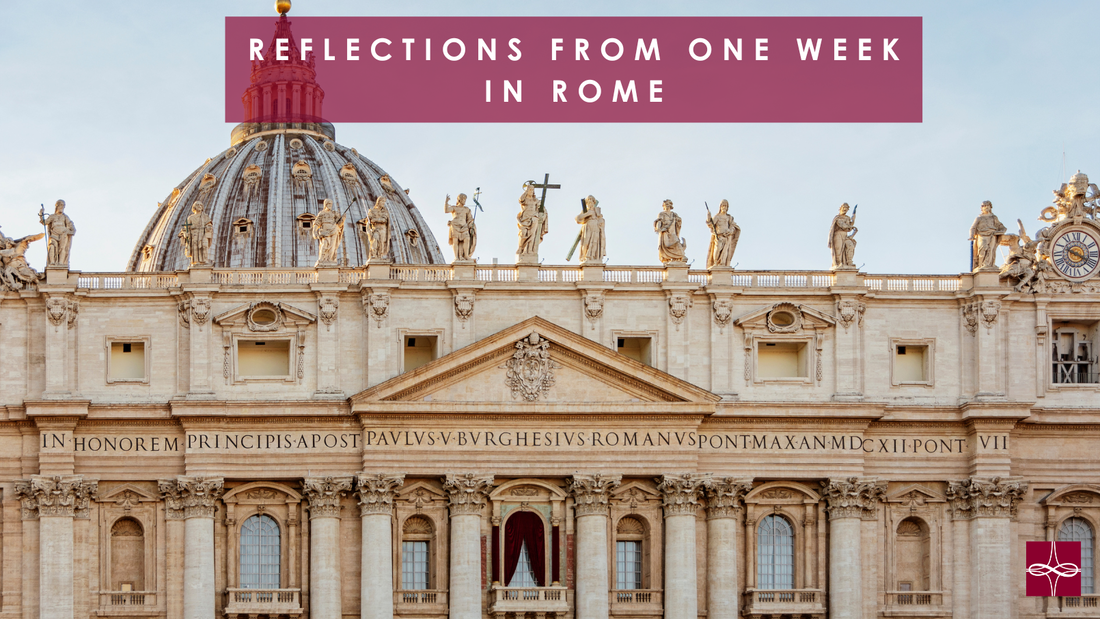



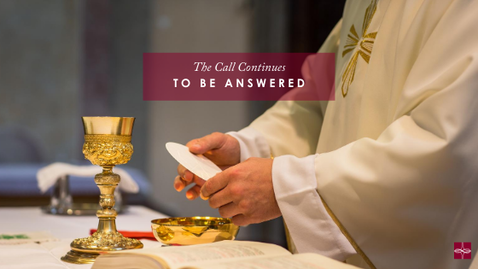

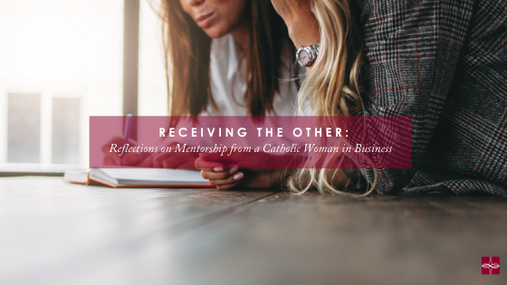

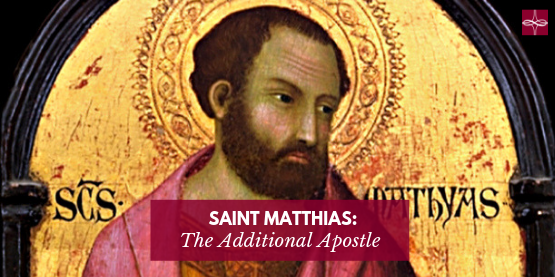

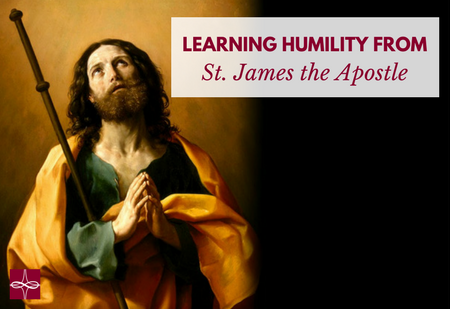



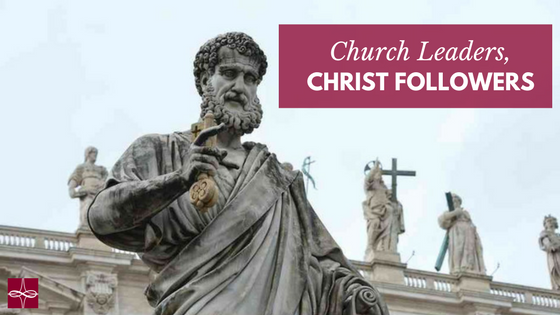
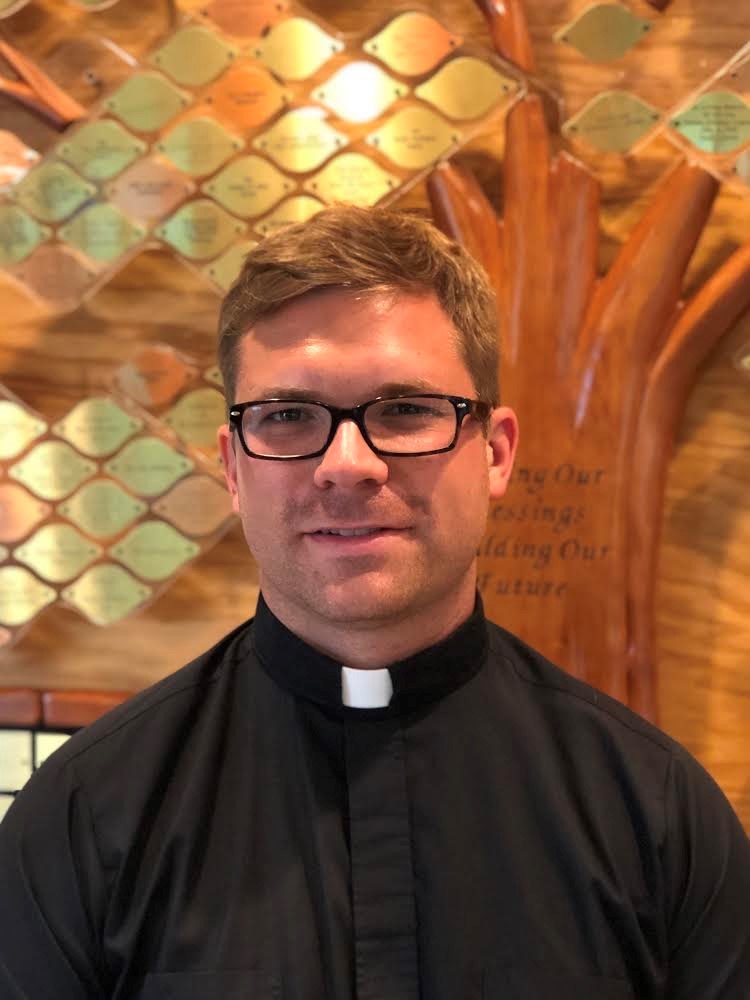
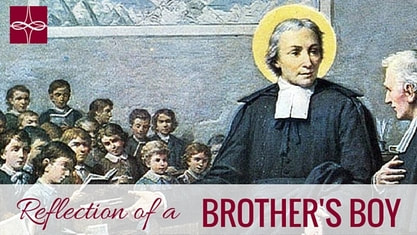

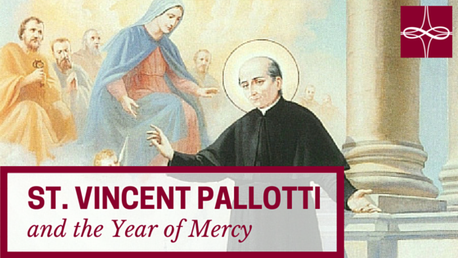
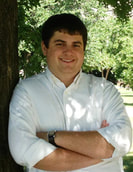

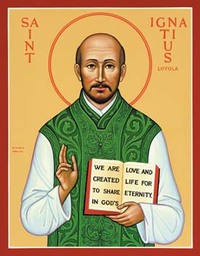
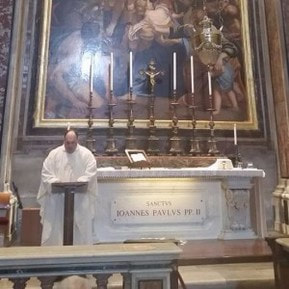


 RSS Feed
RSS Feed